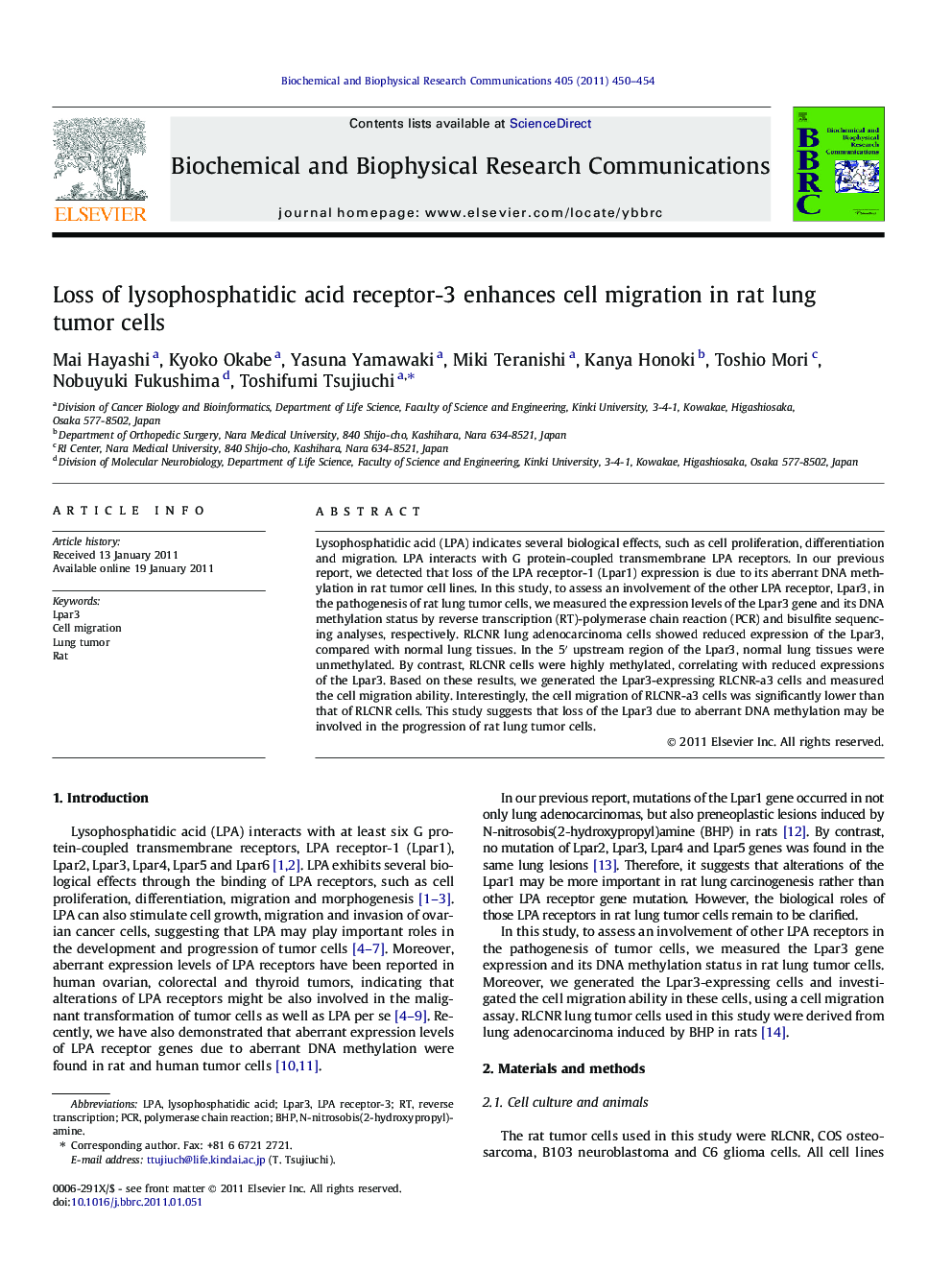| Article ID | Journal | Published Year | Pages | File Type |
|---|---|---|---|---|
| 1930685 | Biochemical and Biophysical Research Communications | 2011 | 5 Pages |
Lysophosphatidic acid (LPA) indicates several biological effects, such as cell proliferation, differentiation and migration. LPA interacts with G protein-coupled transmembrane LPA receptors. In our previous report, we detected that loss of the LPA receptor-1 (Lpar1) expression is due to its aberrant DNA methylation in rat tumor cell lines. In this study, to assess an involvement of the other LPA receptor, Lpar3, in the pathogenesis of rat lung tumor cells, we measured the expression levels of the Lpar3 gene and its DNA methylation status by reverse transcription (RT)-polymerase chain reaction (PCR) and bisulfite sequencing analyses, respectively. RLCNR lung adenocarcinoma cells showed reduced expression of the Lpar3, compared with normal lung tissues. In the 5′ upstream region of the Lpar3, normal lung tissues were unmethylated. By contrast, RLCNR cells were highly methylated, correlating with reduced expressions of the Lpar3. Based on these results, we generated the Lpar3-expressing RLCNR-a3 cells and measured the cell migration ability. Interestingly, the cell migration of RLCNR-a3 cells was significantly lower than that of RLCNR cells. This study suggests that loss of the Lpar3 due to aberrant DNA methylation may be involved in the progression of rat lung tumor cells.
Research highlights► Loss of the Lpar3 expression due to aberrant DNA methylation occurred in rat lung tumor cells. ► The Lpar3 inhibited cell migration of rat lung tumor cells. ► The Lpar3 may act as a negative regulator of rat lung tumor cells.
